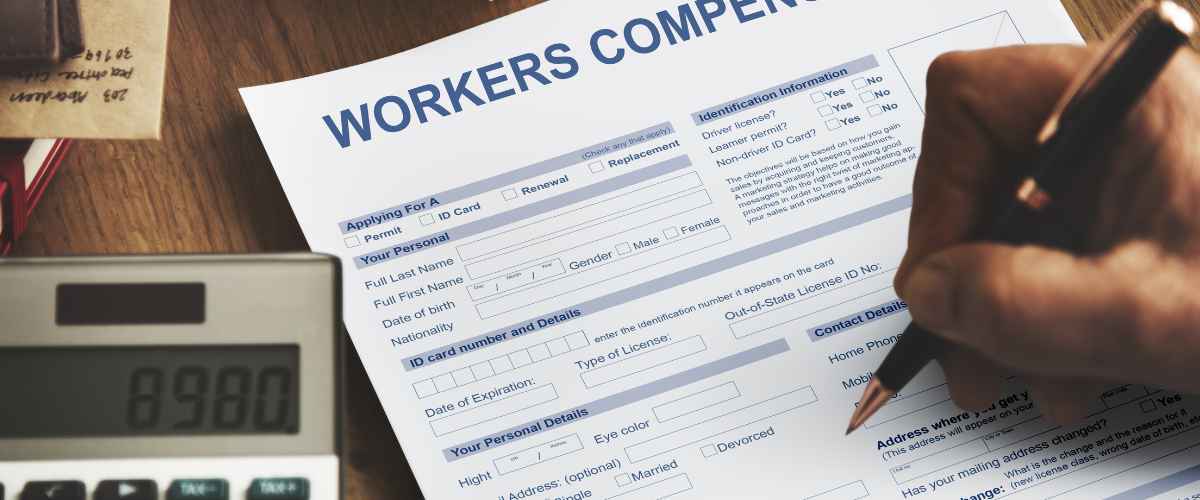Workplace accidents and injuries can happen in the blink of an eye, leaving you with physical, emotional, and financial burdens. In these situations, workers’ compensation benefits are essential to help cover medical expenses and lost wages while you recover. However, navigating Florida’s complex workers’ compensation process can be overwhelming and confusing.
This is why it is essential to hire a workers’ compensation lawyer in West Palm Beach, FL, from Sternberg | Forsythe, P.A. We understand the intricacies of Florida’s workers’ compensation laws and have experience representing injured workers.
Below, you’ll learn about the ins and outs of workers’ compensation intake forms.
Verify Your Employment Classification
If you have sustained a workplace injury, verifying your status as an employee is essential. Correctly apply only to employees, not independent contractors. Misclassifications by employers can lead to denied claims, but our team can review your situation and fight to protect your rights.
To help confirm your employment classification, consider the following factors:
- Whether your employer controls your work schedule, tasks, and methods.
- If you receive a W-2 form for tax purposes rather than a 1099.
- The type of tools or equipment provided by the employer for your job.
- Whether your earnings are based on hourly wages or a salary instead of project completion.
Correctly categorizing your role is key to determining eligibility for workers’ compensation benefits. If you have questions about this classification, contact a workers’ compensation attorney near me.
Include a Complete Account of the Incident
When filling out the intake form, provide a clear and detailed description of the incident. Include the exact time and location of the injury and any tools, machinery, or equipment involved. Explain the specific tasks you were performing and what led to the accident.
Were there unsafe conditions or defective equipment? Such details help create a complete record of the event. Accurate and thorough information strengthens your claim and avoids potential disputes about the cause or severity of the incident.
A workers’ compensation lawyer in West Palm Beach, FL, can guide you in completing this section correctly.
Explain Worsening of Pre-Existing Conditions
Florida workers’ compensation laws cover injuries or conditions aggravated by your job duties, even if they existed before your employment. You may still qualify for benefits if your work environment or job tasks negatively impact a pre-existing condition.
It is important to document how specific work-related activities contributed to the worsening of your condition. When completing the intake form, include as much detail as possible about how your job duties affected your injury or condition. For instance, note repetitive actions, heavy lifting, or prolonged physical strain that played a role.
Accurate and clear explanations help establish a connection between your work and the aggravation of the pre-existing condition. A workers’ compensation lawyer in West Palm Beach, FL, can assist you in providing this information effectively.
Understand Your Rights Around Designated Medical Providers
Florida’s workers’ compensation system often requires you to visit doctors who your employer or their insurance company has approved. These designated medical providers assess your condition, recommend treatments, and determine your work restrictions. However, these providers may not always give an unbiased opinion, which can affect your claim.
If you believe the designated doctor’s evaluation is incomplete or unfair, you can seek an Independent Medical Exam (IME). An IME allows you to receive a second opinion from another doctor to ensure accurate medical findings.
Document Every Symptom
Accurate documentation of all symptoms is vital when filling out your workers’ compensation intake form. This ensures that the full extent of your injuries is recognized and appropriately addressed during your claim process. Be sure to include physical and emotional symptoms of your workplace injury.
Consider the following when documenting symptoms:
- Any pain or discomfort, including its level of intensity and frequency.
- Visible physical injuries such as bruises, swelling, or cuts.
- Limited mobility or restrictions in daily activities since the incident.
- Psychological effects, such as anxiety, stress, or difficulty sleeping, caused by the injury.
A comprehensive symptom record helps create a complete picture of your condition, increasing the likelihood of receiving adequate benefits and treatment. If you are unsure about your symptoms or how to document them, a workers’ compensation lawyer in West Palm Beach, FL, can assist in providing clarity.
Track All Work and Recovery-Related Travel Expenses
When seeking medical care or therapy after a workplace injury, tracking your travel-related expenses is important. Florida law allows you to claim mileage for trips to doctor appointments, therapy sessions, and any other approved medical visits connected to your injury. This includes the cost of gas and tolls, parking fees, or public transportation costs you may have incurred.
Failing to document these expenses could result in missing out on reimbursements you are entitled to under workers’ compensation. To avoid this, keep a detailed trip log, including the date, destination, reason for the visit, and round-trip mileage or costs. Providing detailed and accurate records will make it easier to receive the full amount owed to you.
Need Help With Your Workers’ Compensation Intake Form? Contact Us Today!
Completing your workers’ compensation intake form correctly ensures you receive the benefits and treatment you deserve after a workplace injury. If you have any questions or need assistance with your claim, do not hesitate to contact our workers’ compensation lawyers in West Palm Beach, FL.

